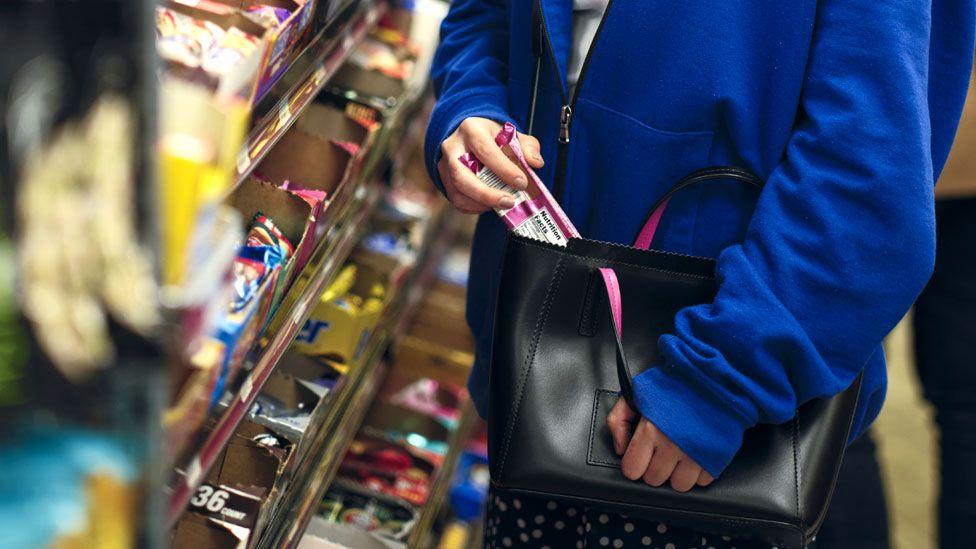'I couldn't stop shoplifting and taking drugs'
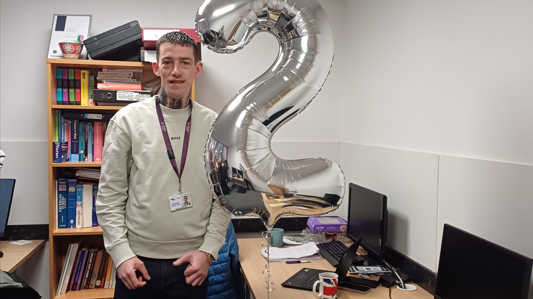
Mr Kelly marked two years clean in December
- Published
"I'd walk past restaurants and stuff like that and look through the windows and I used to think to myself, why can't I just be like them people, like why can't I just be normal?"
James Kelly, 38, from Birmingham, spent more than two decades addicted to drugs and shoplifting before a West Midlands Police rehab programme helped him get his life back on track.
Now two years clean, he helps retailers and business tackle shoplifting - a crime that the force has seen the biggest rise in, according to latest figures - and has won awards for his work.
He said he believes the cost of sending a criminal to rehab far outweighs the cost they have on society, the criminal justice system and of course, shops and businesses.
"I started taking drugs when I was really young but before I started, I was always stealing from shops and stuff and that was as young as like five and six," he said.
He said he was exposed to things he should not have been as a child which influenced his upbringing with both his parents struggling with addiction.
He has since been diagnosed with ADHD, dyslexia and PTSD.
His crimes progressed to burglary, stealing cars, and by 13 he had tried crack cocaine, which triggered deep paranoia and a form of psychosis and caused him to hide in bushes thinking he was being pursued.
He then found heroin at the age of 14 which he said gave him a feeling of love, something he deeply wanted, and became addicted.
Then continued a cycle of drug-taking, violence, crime and prison.
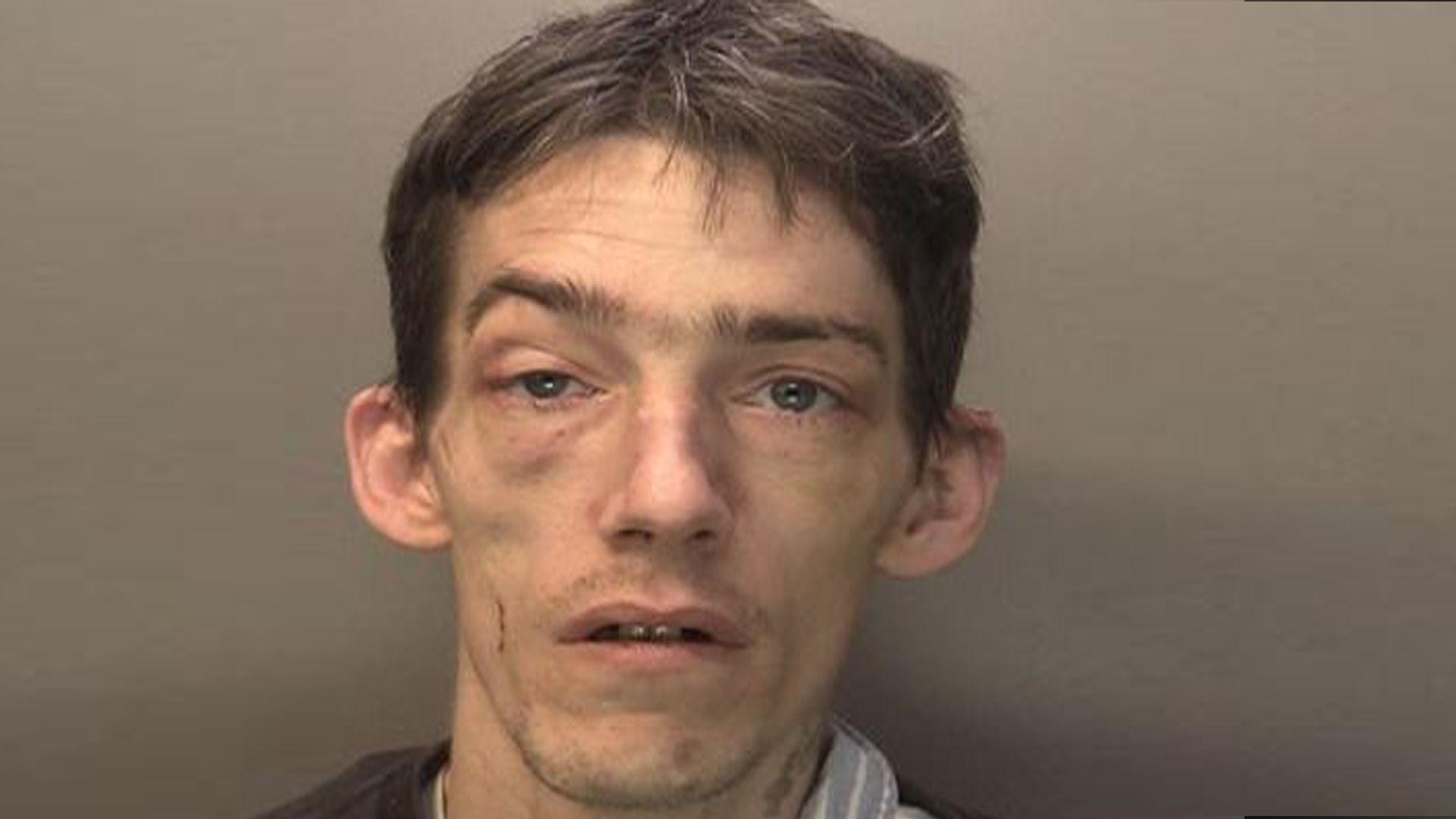
James Kelly was a known offender in Birmingham
He would steal pretty much anything he could sell on from shops, predominantly in north Birmingham, becoming a known offender, and also travelled up and down the country stealing.
"I was burgling houses. I was shoplifting constantly. I was even cultivating cannabis at one point," he said.
"It was just crime. I never, ever thought to get clean. I never thought I'd be able to live a normal life."
At the age of 33, after about 20 years of offending and addiction, he was approached by PC Stuart Toogood from West Midlands Police to join a new programme to help him change his life.
Central England Co-op funded his rehab place, and he completed 12 weeks and some months in aftercare but subsequently relapsed, PC Toogood said.
Mr Kelly slipped back into crime and went to prison, but the officer stayed in touch with him and eventually got him back into rehab in 2022.
This time it worked, and he moved to a recovery community in Derby and marked two years clean in December.
During that time he started working for the programme that helped him - Offending to Rehab in Nottingham - and Clean Slate who help people with substance misuse as well as mentoring people like him.
"I've started to to find my true passion, which is helping other people, but also now businesses as well that I used to steal from," he said.
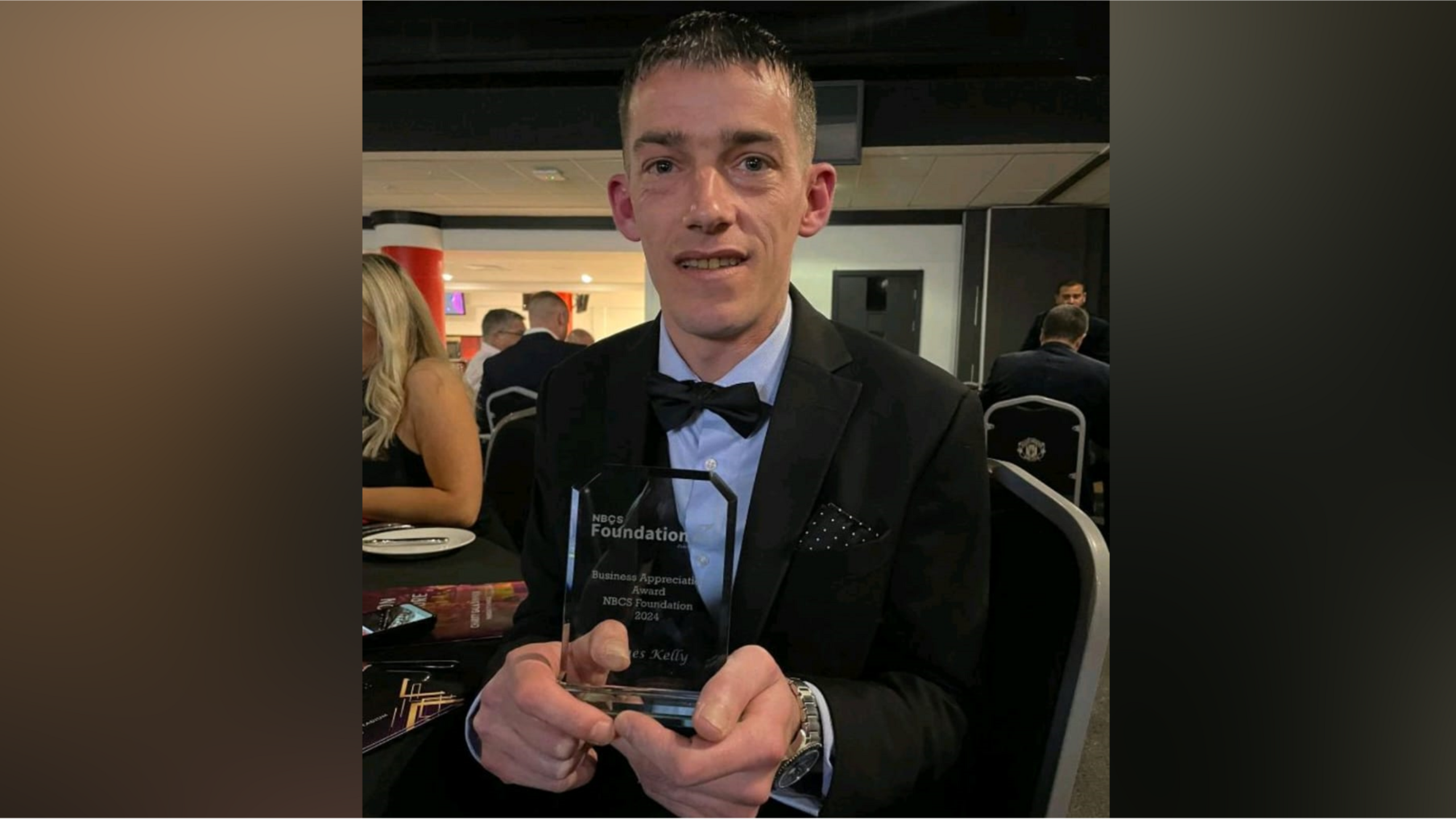
Mr Kelly won an award in March for his work with businesses and former offenders through West Midlands and Nottinghamshire police forces
Through his work with Nottingham Police Business Crime team, they collated figures as part of a presentation to businesses to calculate how much he would cost retailers and criminal justice system if he was still shoplifting, buying drugs and in prison.
He said over a period of 22 months, £100,000 would have been spent on him being in prison for that time, more than £300,000 of stock would have been stolen and he would have spent more than £100,000 on drugs.
In October, figures showed shoplifting was among the offences for which West Midlands Police had seen the biggest spike, amid a record number of cases nationally.
In the 12 months up to June, a total of 26,145 shoplifting offences were recorded by the force, compared to 19,184 in the previous 12-month period.
The rate was higher than the 29% rise in recorded shoplifting across England and Wales during the same time frame.
Mr Toogood said he saw the scale of the problem when he worked in Erdington a few years ago.
"There was a lot of people going in and out of those shops, nicking all the time, relentlessly, continuously nicking and the reason was 99% of the time was heroin and crack.
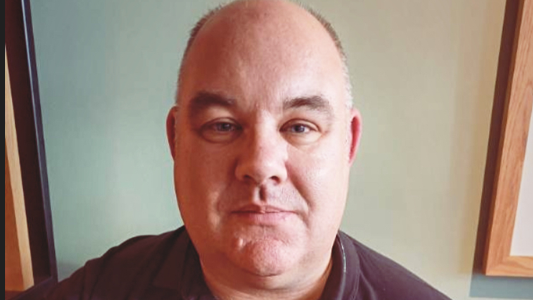
PC Stuart Toogood started the programme in Erdington in about 2018
"Although I've been a reasonably experienced bobby, I've never worked in a High Street like that. I'd never really seen it in that concentration. It amazed me."
He did some research to look at what could be done to combat it and, with funding from the West Midlands Police and Crime Commissioner's office, he started the Offending to Rehab programme as a pilot in Erdington in 2018 before it was fully adopted from about 2021 after several positive outcomes.
The two police officers and two drug workers are proactive, visiting retail parks and asking "who's causing you a problem?"
They have also managed to get some funding from retailers including the Co-op, B&Q and Boots, and there are plans to expand the programme to Coventry and Wolverhampton.
"There's absolutely no doubt whatsoever that the people that we've helped and that includes James and a whole bunch of others, a lot of them genuinely, genuinely, would be dead now, 100%, because some of the ones that we tried to help are dead now and wouldn't accept the help," he said.
He said if offenders have a £1,000 a week habit then they need three times that amount to afford it.
"So you can see that over a month that would be £12,000 and then you times that by 12 and that gives you an idea of how much they're stealing and how much they're actually giving to the illegal drugs trade."
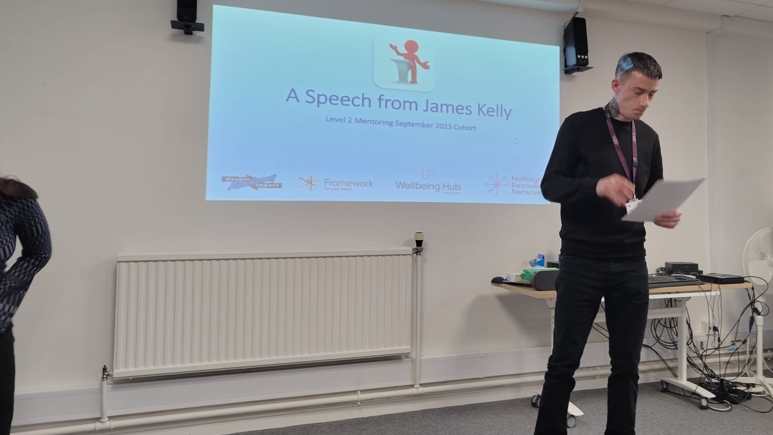
Mr Kelly now gives presentations to police teams and national businesses on how to combat shoplifting
Mr Kelly said he loves the work he does now he has a purpose in life.
"I genuinely care about these lads and get emotional when they're doing well... I've never been that sort of person," he said.
"I've had to grow up in recovery, but I've always had that good side in me, it's just it wasn't predominant and that need for drugs, just overrode any sort of thing like that, but now that good side of me is the most predominant."
Now, he said he no longer looked into restaurant windows, questioning his life.
"So I was just two years clean and last week I went out for meals with like, three or four different friend groups," he said.
"I can now walk past these places and I can go in and I don't have to worry about the price and just eat and enjoy it, and if one of my friends is struggling and can't afford, I can pay for that too."
Get in touch
Tell us which stories we should cover in Birmingham and the Black Country
Follow BBC Birmingham on BBC Sounds, Facebook, external, X, external and Instagram, external.
- Published28 August 2019
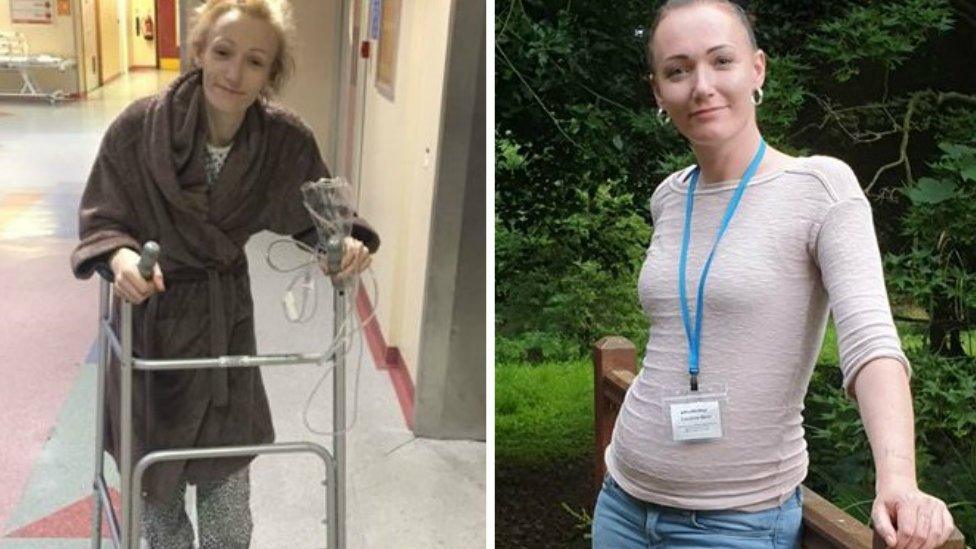
- Published15 December 2023
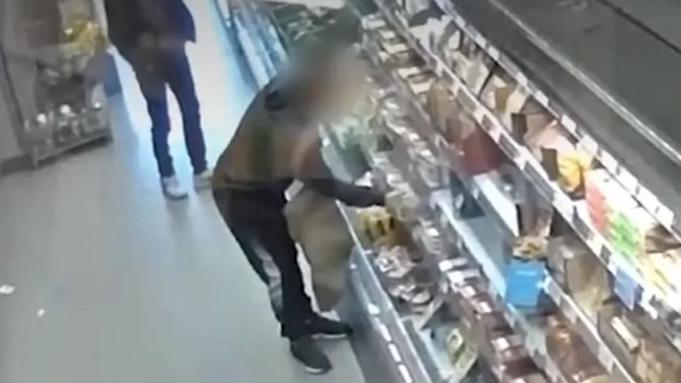
- Published4 February 2023
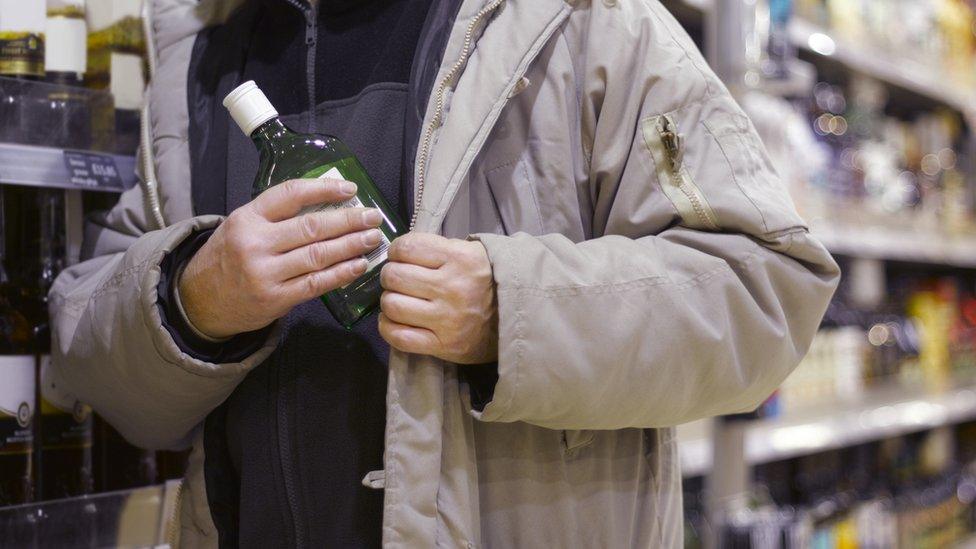
- Published5 November 2024
